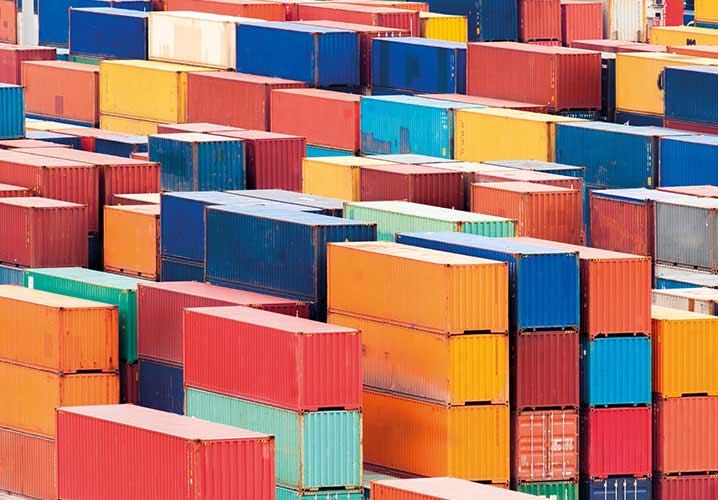
Professional tricksters use freight exchanges
The latest claims statistics from the logistics sector show a significant increase in cargo theft in 2015. In particular, Germany, the Netherlands, Great Britain and Denmark are affected. In most cases, there is a direct link between these fraud cases and the use of online freight exchanges.
In order to avoid empty journeys, freight forwarders market their cargo space or spare capacity via what are known as freight exchanges. Established freight forwarders use the freight exchanges at times of above-average capacity utilisation of their own fleet and allocate transport orders to sub-service providers via these Internet platforms. For shippers, the challenge now is to maintain an organisational overview when transport service providers and drivers are in some cases changing daily.
Thilo Wandel, Head of Transport Insurance at Funk, says: ‘These criminals trick people professionally, highly skilfully and with planning. Nevertheless, the danger of cargo theft can be reduced considerably with a few simple measures.’ According to Wandel, in order to not endanger your own insurance protection in a worst-case scenario, carefully selecting and checking freight-forwarding agents is a necessity. The aim of this is to ensure the integrity and authenticity of potential business partners. As a rule, do not assign high-value goods with a total cargo value of over 100,000 euros via freight exchanges.
Subcontracting – the passing on of transport orders by a freight forwarder to a sub-carrier – involves additional risks and should thus be avoided whenever possible. To minimise the risk of cargo theft, the sub-carrier should be subjected to the same reliability checks as the freight forwarders themselves. This should be contractually agreed. If the freight forwarder cannot guarantee these checks, the passing on of the transport order should be prohibited. When allocating orders via freight exchanges, subcontracting should generally be prohibited.
Four typical approaches
Organised gangs of fraudsters systematically exploit the chaos in subcontracting of transport orders. Four typical approaches to cargo theft via freight exchanges have become established:
Identity fraud
Criminals make use of well-known companies and forge documents of existing freight forwarders and transport orders. Signs of fraud include the use of free email addresses such as GMX, Gmail and Hotmail and mobile telephone numbers as the only contact information.
Takeover of freight forwarders
Criminals take over established freight forwarders who are at risk of insolvency with the intention of carrying out cargo thefts under the well-known name. The criminals profit from the good reputation of the shell company while the cases of fraud mount up.
Back-door recruitment of employees as moles
In this case, criminals are specifically positioned as employees at freight companies in order to provide their criminal associates with information about worthwhile transportations. A driver from the criminal network then comes to collect the cargo from the customer, claiming to be a subcontractor booked at short notice.
Fake/dummy companies
Criminals simulate a freight company with forged websites and apply for cargo loads on freight exchanges. Lorry number plates, as well as documents like a CMR contract, insurance certificate and licences, are forged.
Through the loss of what are mostly entire lorry loads, the average damages costs are high five- or six-digit sums – a problematic scale for any transport insurance contract.
Ways to track down freight fraudsters:
- Only make use of long-term members of freight exchanges and compare the ID number and the contact data provided by the freight forwarder with the data in the freight exchange profile.
- Request and check references: confirm insurance confirmation/policies by calling the insurer; the licences/approvals, certificate of registration, VAT number and bank details (IBAN/BIC) should also be checked.
- Avoid contact via mobile phone and free email services, but if necessary, corroborate validity with a landline call.
- Check the personal details of the collecting driver (ID, driving licence), ask for and precisely coordinate the delivery location, and compare the notified and actual number plate. Take particular care if documents contain incomplete data, misspellings, illegible passages or inconsistent formatting. Those are signs of possible forgery.
Security checks should be carried out again in case of changes to loading times at short notice and especially in case of changes of company/driver/number plate. Appropriate training of internal employees, in combination with documented operating procedures, also helps raise awareness of the issues. Dr Alexander Skorna, Head of Business Development at Funk, summarises like this: ‘The good news is that although the fraudsters are becoming increasingly professional, you can take an initial step to protect yourself against them with the measures listed here.’
19/08/2020
Your point of contact



